Livin’ On The Edge: The Precarious Architecture of 7 European Cliff Cities

(Photo: Maria Rosa Ferre/Flickr)
Long before overcrowding and overpopulation was forcing humanity to think about building vertically, Europeans were already building in, on, and even over the edge of sheer cliffs. But forget simplistic dugouts and cliff caves. Across Europe there are towns and even portions of cities that are as precarious as anything built by ancient peoples simply looking for shelter.
Check out seven places where the structures seem as though they are practically asking to fall off a cliff.

1. SUSPENDED HOUSES OF PONT-EN-ROYANS
Pont-en-Royans, France
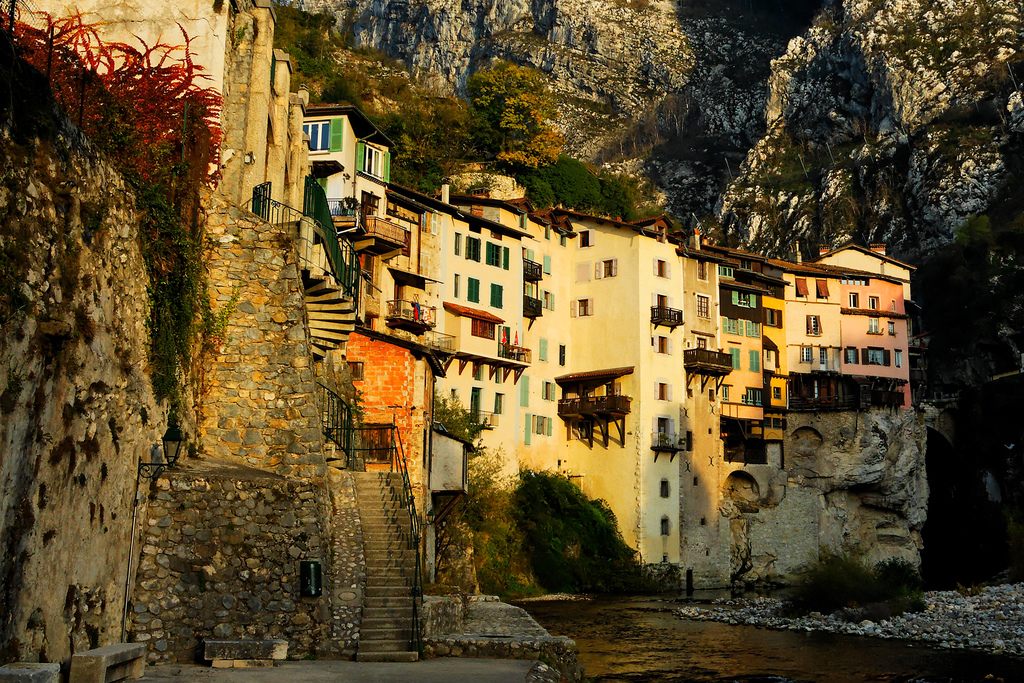
(Photo: Laurent Espitallier/Flickr)
Built in the 16th century, the suspended homes in the small French town of Pont-en-Royans are a great example of Are-You-Sure-This-Is-A-Good-Idea architecture. The colorful array of homes on the cliff side of the town hang out over craggy rocks, lush foliage, and the river below. There is a popular bridge near the top of the town where visitors congregate to take pictures of the questionable, but beautiful edifices, because apparently in Pon-en-Royans, one must always be suspended over open air.
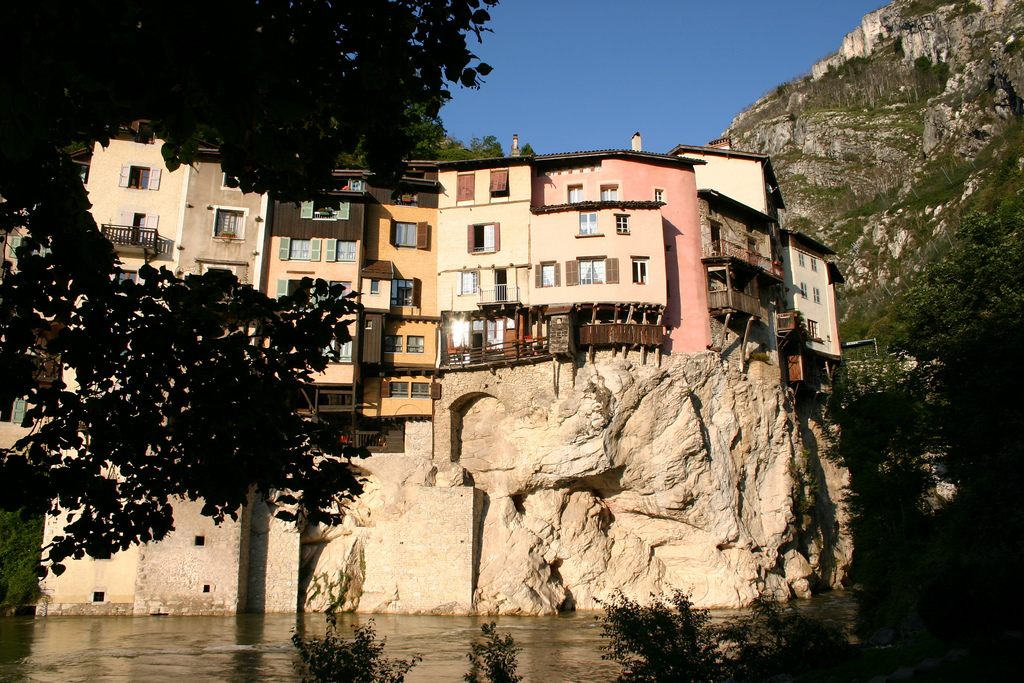
(Photo: Patrick Gruban/Flickr)

(Photo: Eric Huybrechts/Flickr)
2. SETENIL DE LAS BODEGAS
Setenil de las Bodegas, Spain
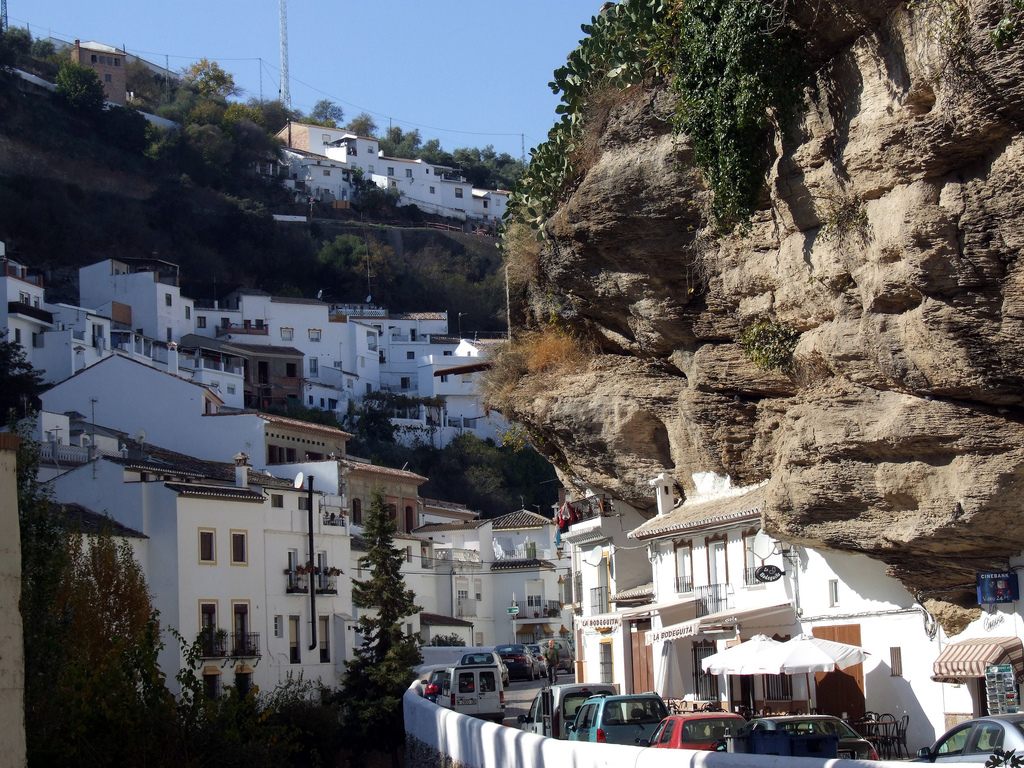
(Photo: José Luis Sánchez Mesa/Flickr)
It seems that there have been people living in the region of Setenil de las Bodegas for at least 2,000 years, but it was not until the 12th century or so that they took to building their dwellings right into the cliffs. The Moors who built the original cliff settlement dug deep lanes into the rock to fortify their dwellings within from Spanish attacks. Eventually the settlement was taken by the Spanish, but it continued to grow, expanding the original cliff constructions and building a small city on the top. Today visitors can still take to the winding, cliff-bound lanes and see the lovely white houses inset into the cliff wall, not dangling over a void, but sitting beneath a shelf of dangling rock.
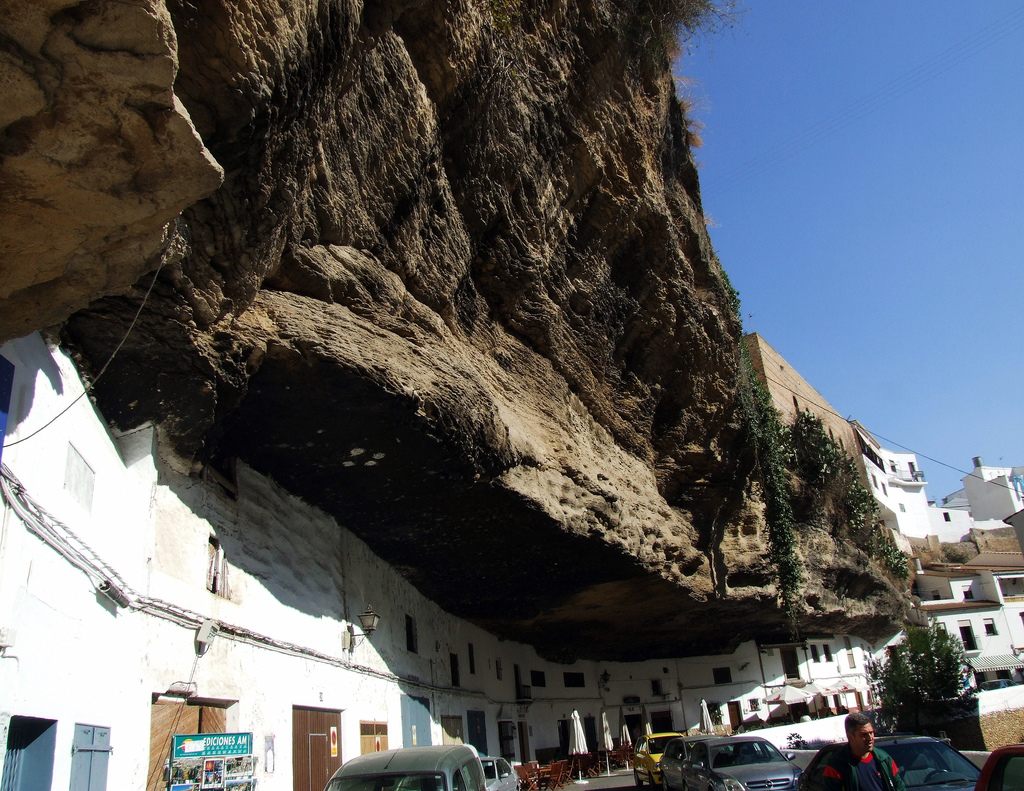
(Photo: José Luis Sánchez Mesa/Flickr)
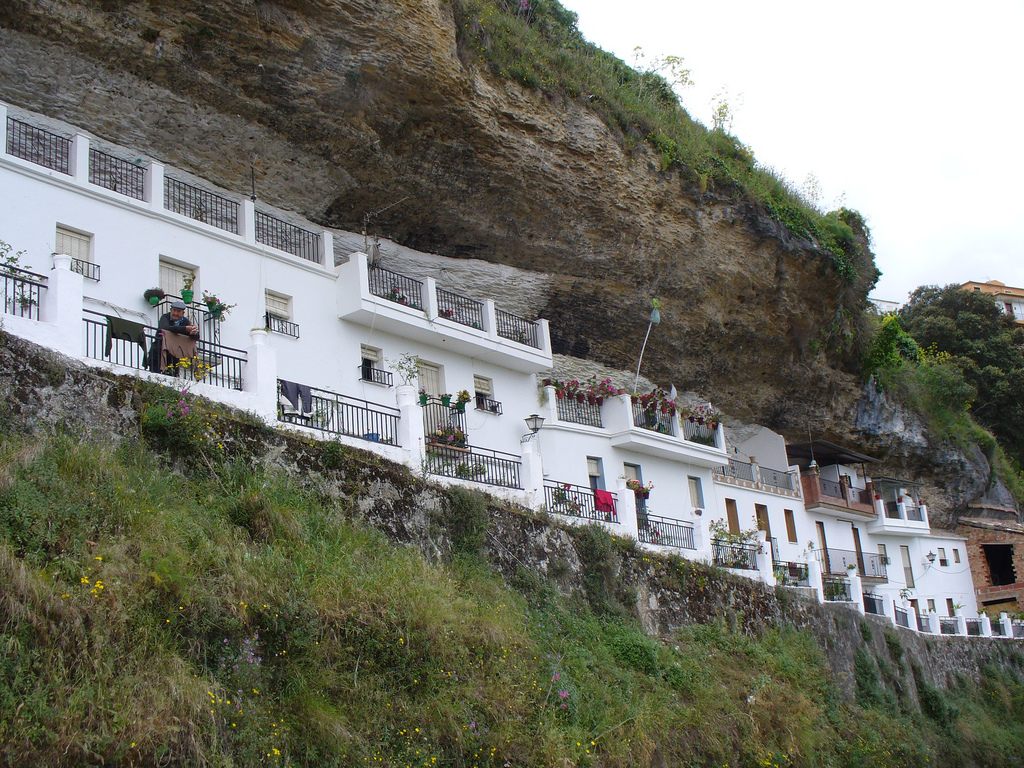
(Photo: Samu/Flickr)
3. CASTELLFOLLIT DE LA ROCA
Castellfollit de la Roca, Spain

(Photo: Maria Rosa Ferre/Flickr)
This medieval Spanish village looks like something straight out of Tolkien. Originally settled around a thousand years ago, the village sits on a tall, thin strip of volcanic rock with a 160-foot on either side. The rivers Fluvià and Toronell flow at the bottom of each respective cliff but at the top, rows of historic Spanish houses have been built right up to the edges, looking like they might crowd each other right off. The tight streets in the town seem to have barely been pried open between the buildings, just wide enough that none of them are shoved out into the abyss. Good luck finding parking.
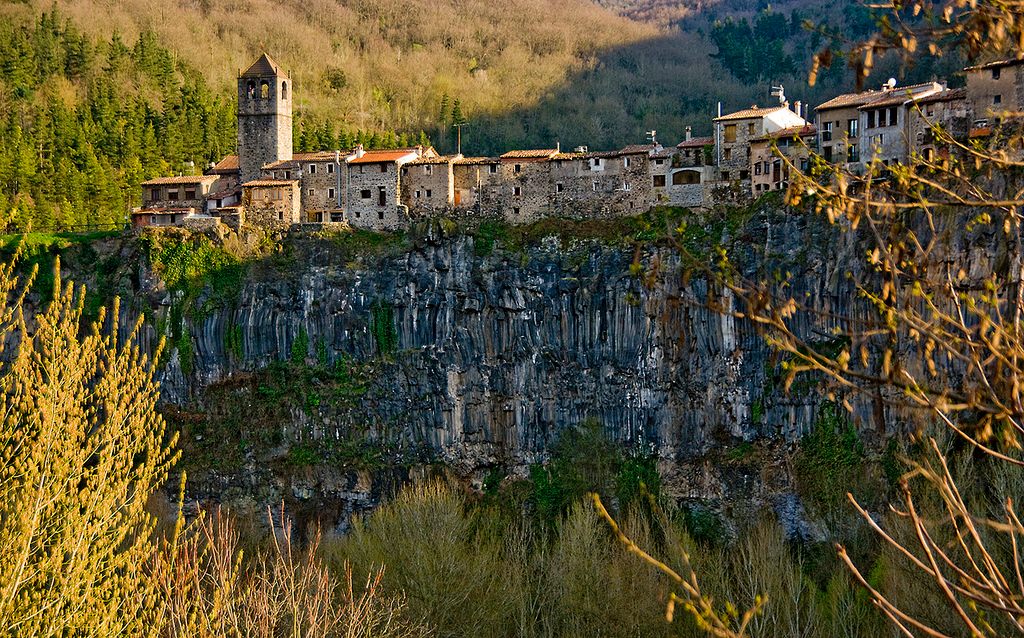
(Photo: SBA73/Flickr)
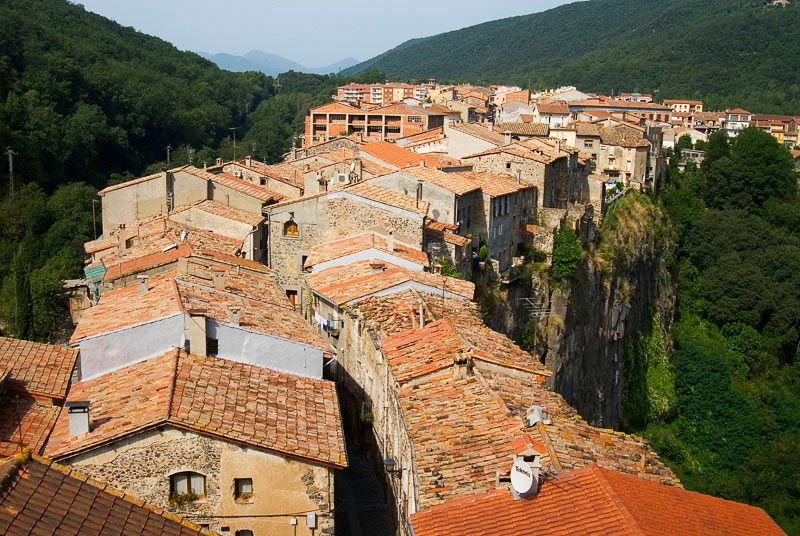
(Photo: Ferran Cerdans Serra/Flickr)
4. HANGING HOUSES OF CUENCA
Cuenca, Spain
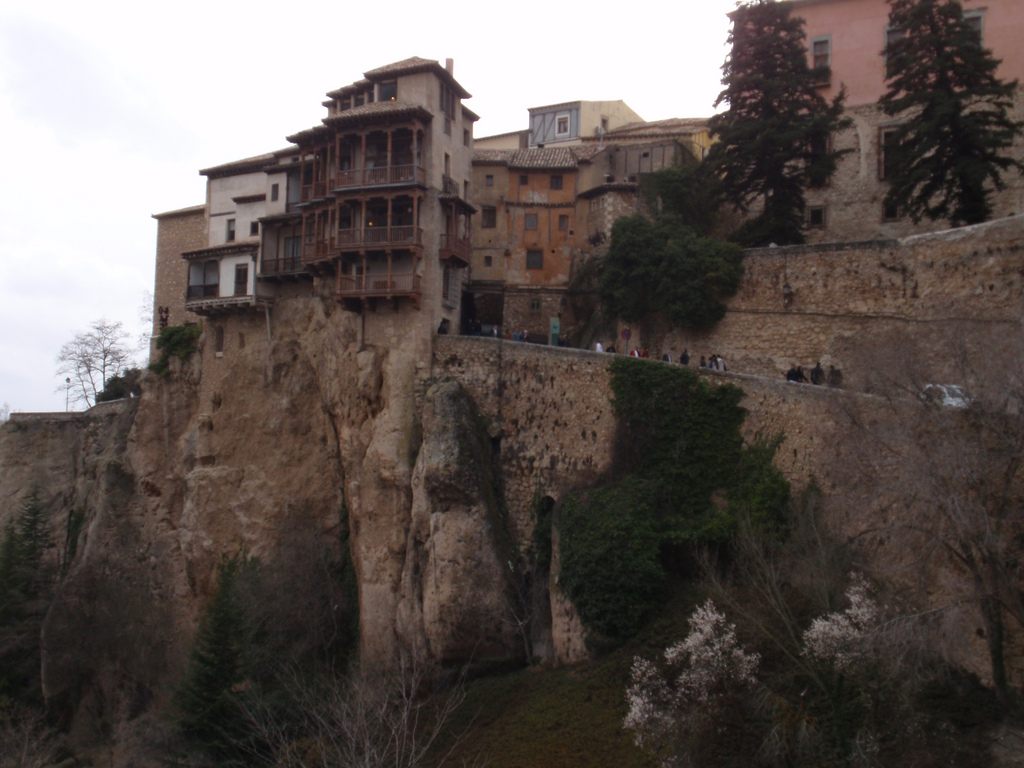
(Photo: elainne_dickinson/Flickr)
Starting in about the 15th century, space in the hilly city of Cuenca, Spain began to run out. Over the next 300 hundred years or so, as Cuenca continued to grow, the builders began to get a bit more creative in finding space, by constructing their buildings to hang out over the edge of cliffs. Many of these hanging houses would contain seven or eight stories, all stacked atop the air above the valley below. In the modern day, many of the hanging houses have been taken down, but a few stunning examples still remain, most notably one that now contains the Spanish Abstract Art Museum.
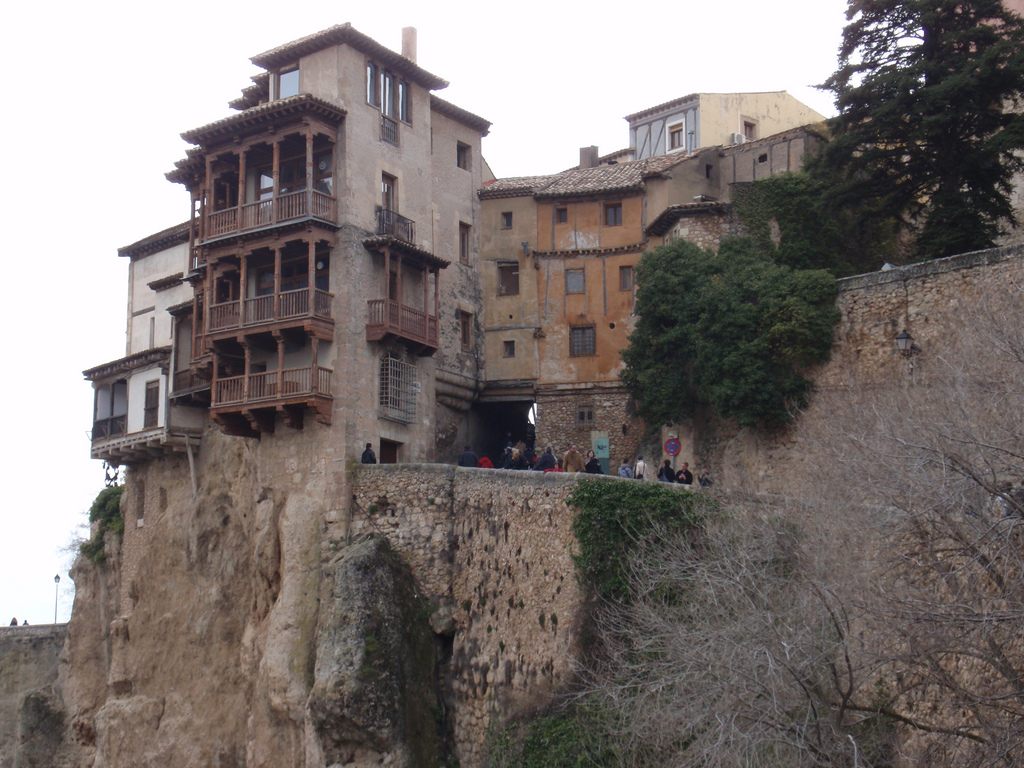
(Photo: elainne_dickinson/Flickr)
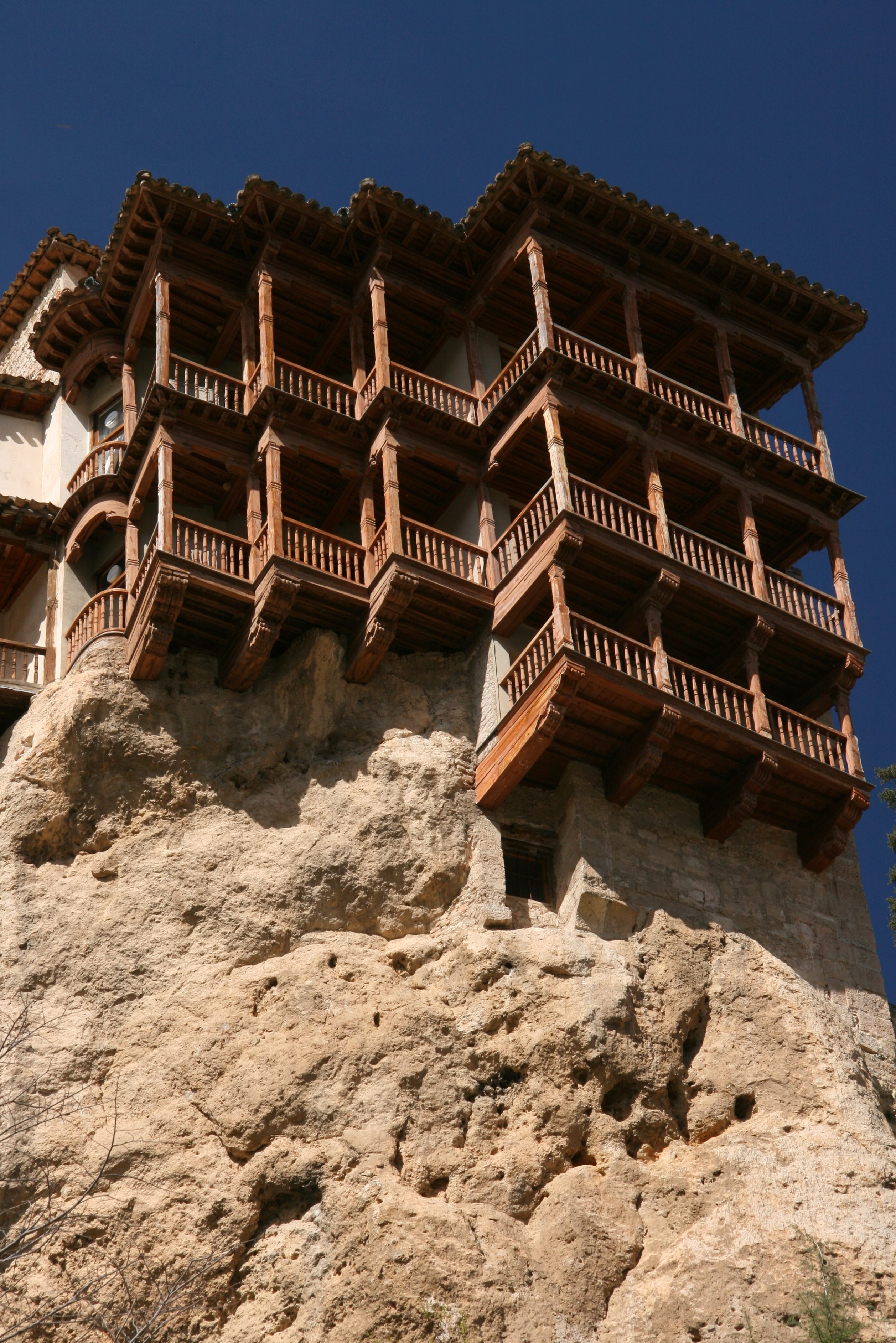
(Photo: orvalrochefort/Flickr)
5. THE VILLAGE OF CRACO
Craco, Italy
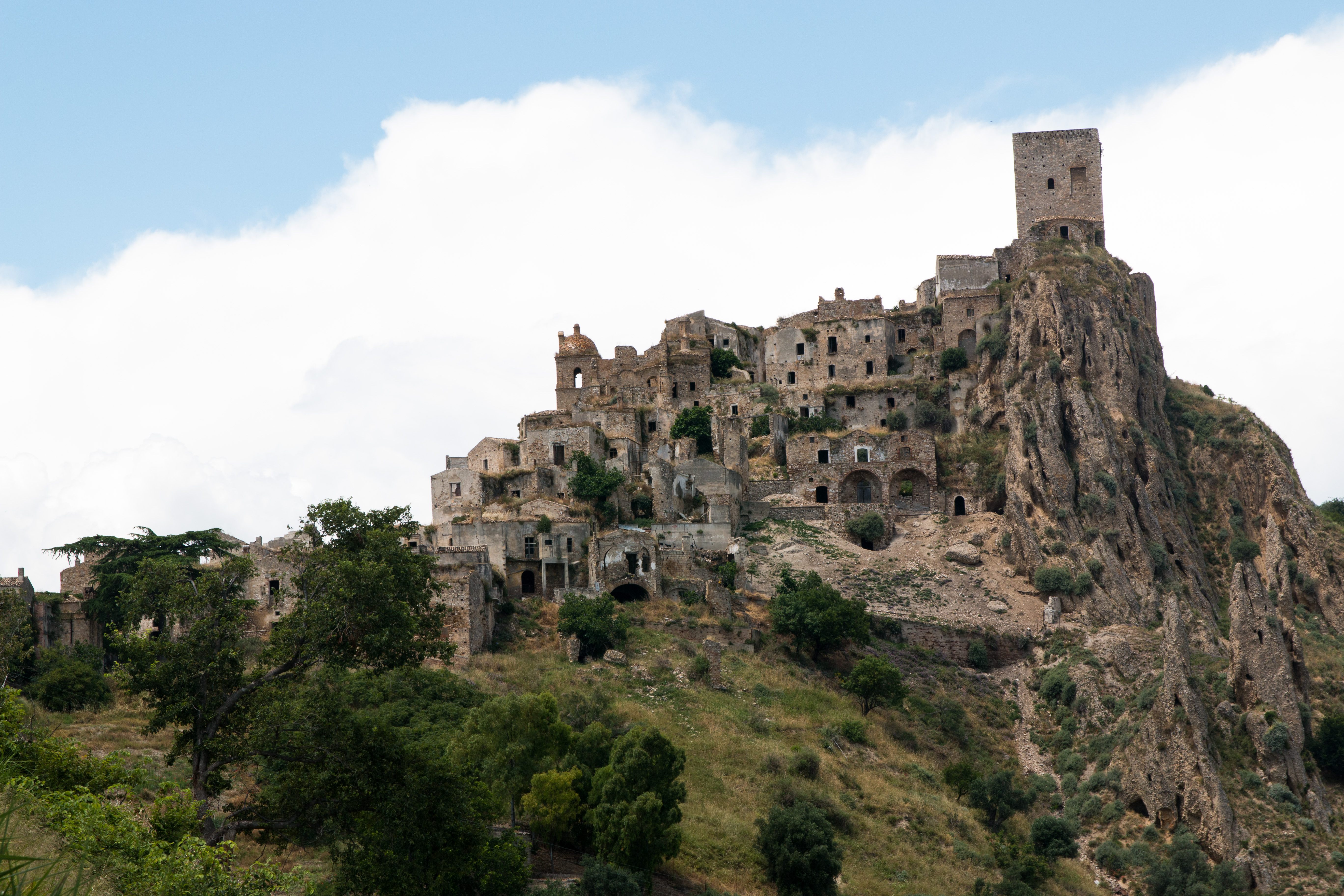
(Photo: Martin de Lusenet/Wikipedia)
Moving over to Italy, maybe the only rival to Spain’s cliff-built dominance, there is the village of Craco, a jumbled stone ghost town that looks like it might just slide down a cliffside. Built in the 8th century, the chaotically-stacked dwellings were created to be easily defensible from a barbarian horde. While this strategy was effective against raiding barbarians, it was less so against attacks by Mother Nature, and in 1991, the historic town finally suffered a landslide that forced the remaining inhabitants from the site. It is now a precarious ghost town that still sees tourists and religious festivals using the crumbling streets.
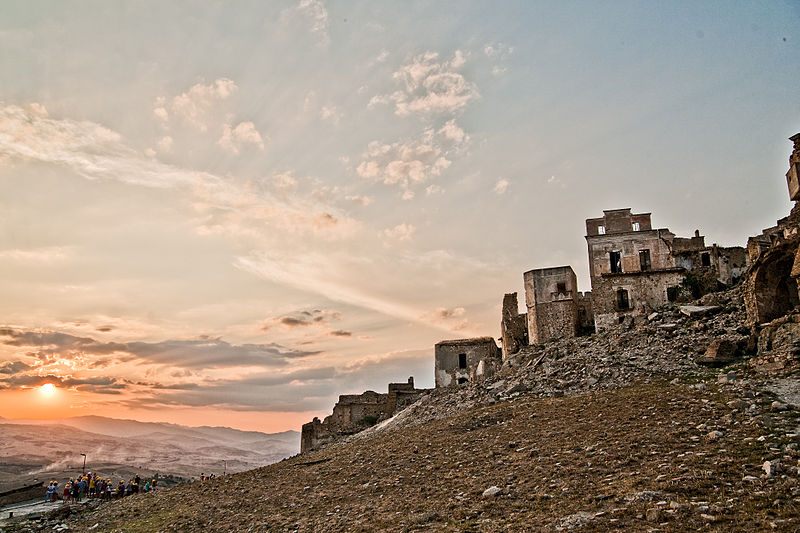
(Photo: Andrea Tomassi/Wikipedia)
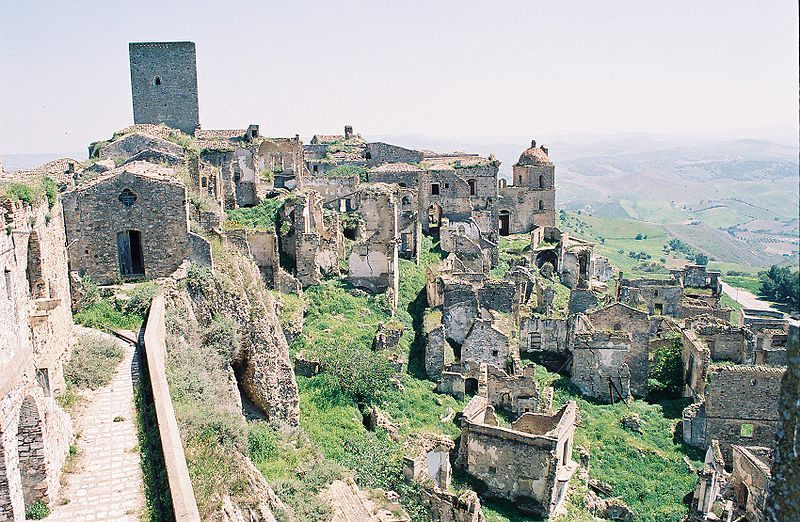
(Photo: Wallora/Wikipedia)
6. NEBIDA LAVERIA
Iglesias, Italy
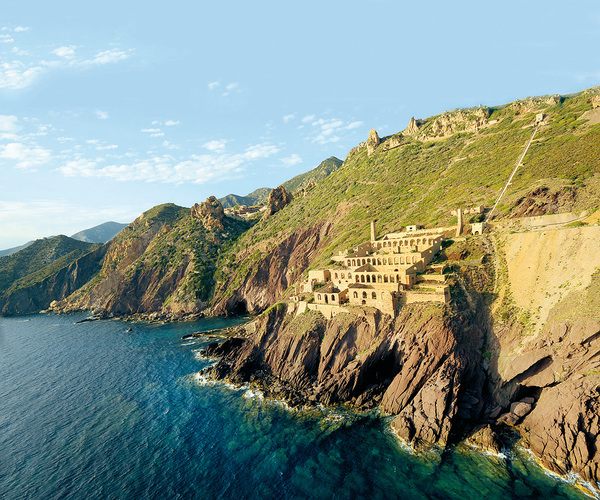
(Photo: Atlas Obscura)
While this was originally a processing plant built on the steep slope of an Italian sea cliff, the site is now being turned into a picturesque tourist town. Today the mineral plant is abandoned, but its slowly decaying remains are still clinging to the cliffs and have become a popular spot to come and gaze out at the pristine waters with nothing to obstruct your view. It may not be the largest cliff creation around, but It certainly offers the best view of the Italian sea.
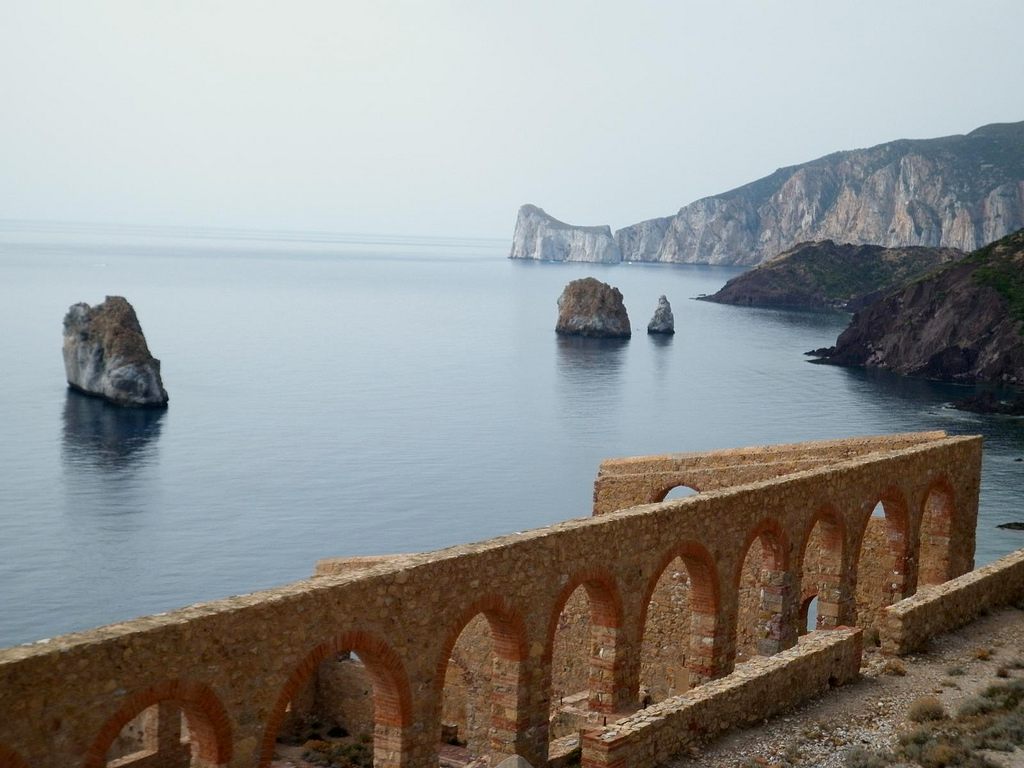
(Photo: /luca/Wikipedia)
7. SANT’AGATA DE’ GOTI
Sant’Agata de’Goti, Italy

(Photo: Kris De Curtis/Wikipedia)
Down by the ankle of the Italian “boot,” the medieval town of Sant’Agata de’Goti ends in a sheer cliff that extends well above the natural summit thanks to the rows of buildings built flush with the rocky face. The long, flat side of the city rises above a river gorge below, and the inward side of the city is a full of cramped lanes and historic buildings. Sant’Agata de’Goti has managed to stay relatively unchanged from its old world roots thanks to the streets mainly being too narrow even for vehicles. But this is still most apparent in the view of its unreal bulwark of cliff-side architecture.
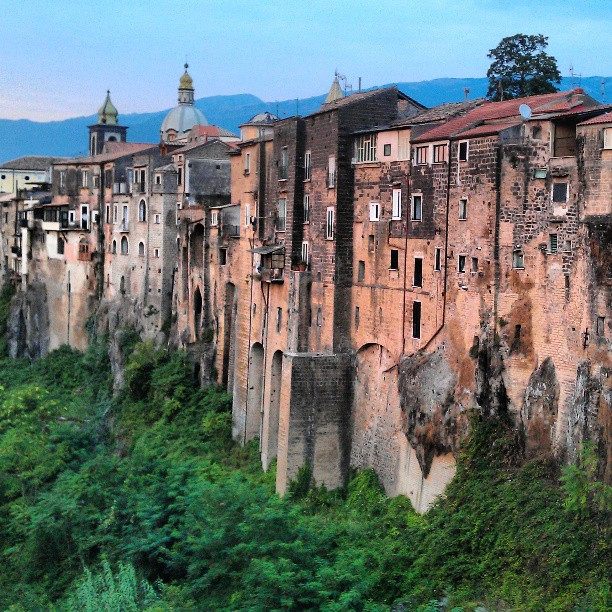 (Photo: antiel_eldar/Flickr)
(Photo: antiel_eldar/Flickr)
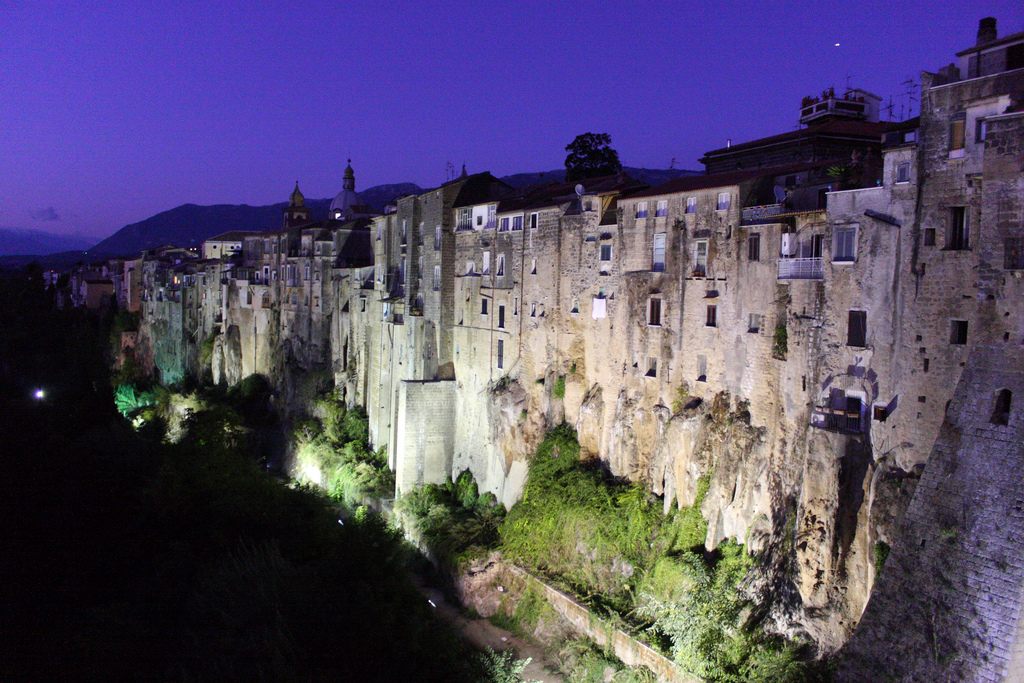
(Photo: Pierluigi Peperoni/Flickr)


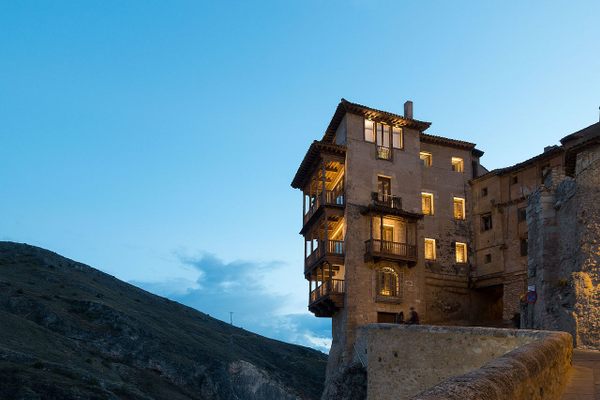











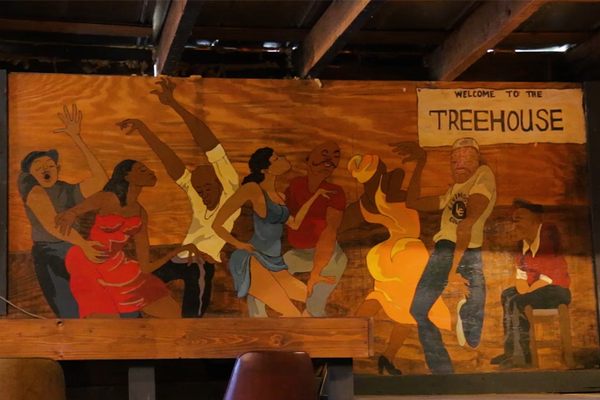



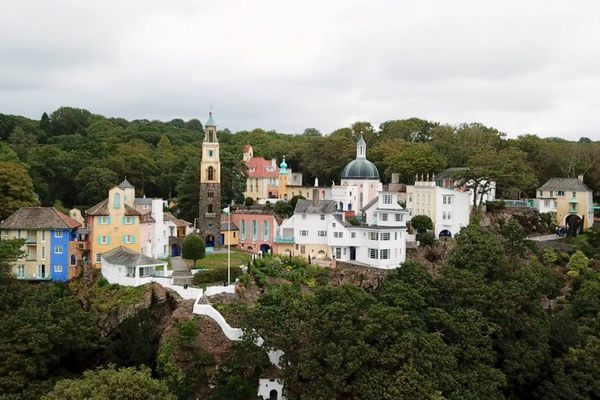

Follow us on Twitter to get the latest on the world's hidden wonders.
Like us on Facebook to get the latest on the world's hidden wonders.
Follow us on Twitter Like us on Facebook